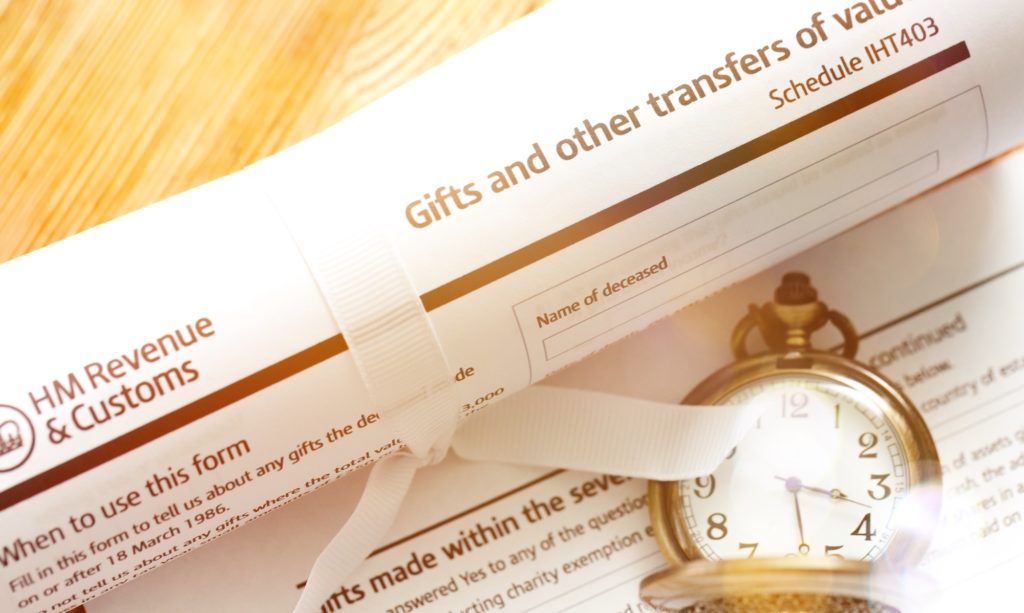
Constant political and financial speculation could prevent you from making tax-free gifts. However, you can gift loved ones in a way that helps eliminate excess taxes. In this blog post, we examine the method for leaving tax-free gifts to the ones you love.
Make Annual Tax-Free Gifts

Annual exclusion gifts transfer money or property in an amount which does not exceed the annual gift tax exclusion. In 2021, the annual gift tax exclusion is $15,000 per recipient. Therefore, this year, give up to $15,000 per person. You can do so to as many individuals as you choose. In fact, when done right, you won’t even have to file a federal gift tax return (Internal Revenue Service Form 709). In other words, the Internal Revenue Service (IRS) does not consider gifts equal to or less than the annual exclusion as taxable gifts. However, you may need to file a gift tax return. For example, do so if your gifts either exceed or do not qualify for the annual exclusion amount. Your estate planning attorney or accountant can guide you.

Married couples can take double advantage of the annual exclusion and gift $30,000 in 2021. However, the IRS may require couples to file a gift tax return if the amount of the gift is meant to be split between them.
For Tax-Free Gifts, Make Medical Exclusion Payments

Another type of transfer the IRS does not consider a gift for taxes is a payment that qualifies for the medical exclusion. Payments qualify for this tax-free gift exclusion if they are made on behalf of an individual to someone that provided medical care or medical insurance to the individual. In general, medical expenses that qualify for this exclusion mirror the ones which are deductible for federal income tax purposes. Therefore, in 2021, pay the cost of your grandchild’s emergency appendectomy. And, in the same year, give your grandchild an additional $15,000 without the need to file gift tax returns. This is a great way to provide a tax-free gift.
To qualify for the medical exclusion, payments must meet two critical requirements:

- Make payment directly to the person or institution that provided the medical care or medical insurance. Did you give the money to the individual who received the medical care or insurance benefit? In this case, even with explicit instructions that it be used to pay for the medical care, the IRS would consider the payment a gift to the individual instead of payment of a qualified medical expense.
- The person who was paid must not have been reimbursed by their insurance company. Reimbursed amounts do not qualify for eligibility under the unlimited medical exclusion tax-free gift category.
Make Payments That Qualify for the Educational Exclusion

Another way to give a tax-free gift is with a payment that qualifies for the educational exclusion. The IRS does not consider this a gift for gift tax purposes. For example, in 2021, in addition to paying for your grandchild’s emergency surgery and giving them $15,000 (see above), you can pay their college tuition costs. This type of gift does not require a gift tax.
To qualify for the educational exclusion, a payment must meet two critical requirements:

- You must make payment directly to the institution providing the education rather than to the individual receiving the education.
- Your payment must be for tuition only. This means it will not cover books, supplies, room and board, or other types of education-related expenses.
If your payment fails to meet either of the above requirements, the IRS will consider it a gift to the individual. So, it won’t be a tax-free gift.
About Skvarna Law in Glendora & Upland, California

Skvarna Law Firm operates offices in Glendora and Upland, California. Also, we provide legal services. We cover San Bernardino, Los Angeles, Orange, and Riverside Counties. This includes several cities. Upland, Ontario, Rancho Cucamonga, Fontana, Colton, Rialto, Chino, Chino Hills, Glendora, Claremont, Pomona, La Verne, Montclair, San Dimas, Azusa, Covina, West Covina, Diamond Bar, Walnut, La Puente, Corona, Norco & Mira Loma.


